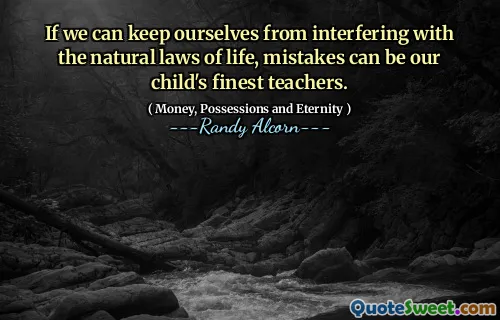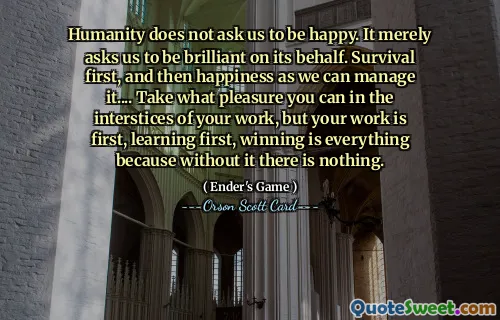
Don't disparage ignorance. If it weren't for ignorance we wouldn't have anything to learn.
This quote serves as a powerful reminder that ignorance, often viewed negatively, plays an essential role in the learning process. In our pursuit of knowledge, we encounter areas where our understanding is limited or nonexistent. Recognizing and accepting ignorance enables us to remain open-minded and curious, which are critical traits for growth. Rather than dismissing ignorance as purely detrimental, it can be seen as the starting point for discovery, innovation, and enlightenment. When we acknowledge what we don't know, we're motivated to seek answers, ask questions, and explore new ideas. This mindset fosters humility and perseverance, two qualities vital for progress. In the context of learning—whether in academics, personal growth, or professional development—embracing our ignorance can lead to a deeper engagement with the material and a more genuine pursuit of understanding. It also encourages a culture where questions are welcomed rather than dismissed, creating an environment conducive to collective knowledge-building. However, it's important to differentiate between healthy recognition of ignorance and complacency. The former propels us forward, igniting the desire to learn; the latter may hinder growth. Overall, this perspective shifts the view of ignorance from a flaw to a fundamental element of the journey towards wisdom. As Ted Agon suggests, without the presence of ignorance, there would be little stimulus for learning, thus highlighting its paradoxical yet vital role in the human pursuit of knowledge. Embracing ignorance as a necessary step on the path of learning can redefine how we approach challenges, setbacks, and our constant quest for understanding.





